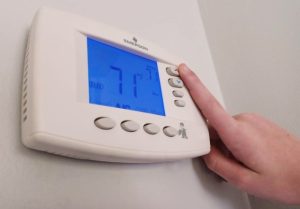
While it makes sense to cut back and make savings first, that won’t be enough for many people who will have to find more money to pay increasing energy bills, food costs and petrol prices. Express.co.uk has compiled a list of simple ways to both save and make money to help people through the cost of living crisis.
Express.co.uk asked money experts from Plum and Quotezone for their tips on ways to save money:
1. Switch debt to a lower interest rate
With interest rates set to rise again, it’s even more important to get on top of any debts, especially if they already have high-interest.
2. Review your expenses and budget
It’s easier than it used to be, as apps like Plum can go through and categorise your spending, working out what goes on monthly bills, energy, shopping, personal care and home entertainment.
3. Compare bills
Loyalty is costly to consumers, but let’s face it – most people would rather live their lives than spend time scouting for better deals and keeping on top of financial admin.
4. Remortgage
The Bank of England is estimating that around two-fifths of mortgages will go up over the next year, so it’s a good idea to remortgage if a fixed mortgage deal is coming to an end within the next six months.
5. Use an app to make money saving easy and fun
Apps can automate savings and make saving easier and more fun.
6. Check tax breaks
Some people could save money with tax free childcare or by taking advantage of the marriage allowance.
7. Shop around
When renewing car insurance it’s a good idea to shop around for a renewal price three weeks before the renewal is due, advises Quotezone.
8. Don’t let annual direct debits auto-renew
Always search for a competitive price as it could save a substantial amount.
9. Pay annually in one go rather than by monthly direct debits
When it comes to car insurance this could lead to big savings.
10. Order in bulk where possible
This applies to lots of things including home heating oil and toiletries.
11. Apply for DWP benefits
Cold Weather Payment and the Winter Fuel Payment provide those eligible with between £100 to £300 to help pay heating bills over the winter months.
12. Check tax relief
HMRC is offering relief worth £312 per year.
13. Efficiency checks
Try energy efficient lightbulbs, draft excluders, boiler jackets and radiator reflectors.
14. Look out for schemes such as the Warm Home Discount Scheme
These provide a one-off discount of £140 off the winter electricity bill between September and March for certain people.
15 Take rewards where you can get them
These can soon add up.
16. Downgrade mobile phone, internet or TV packages
People can also save money shopping around or haggling.
17. Consider transferring debt to a new 0 percent APR credit card
Bear in mind there is normally a time limit here before the interest rate starts to rise.
DON’T MISS
Savings provider ups interest rate on easy access accounts [UPDATE]
State pension: 520,000 Britons set to miss out on upcoming boost [WARNING]
State pensioners get inflation-busting increase in Truss energy plan [ALERT]
When can households expect the next £324 cost of living payment? [UPDATE]
For people who have tried every money saving tip there is, it might be time to look into ways they can earn more money.
Nearly half (46 percent) of people in Britain are making a second income using side hustles, according to Airtasker.
Some things like hiring out a car parking space or renting out a room don’t require people to invest that much time into them.
Financial comparison website NerdWallet has highlighted five side hustles people could start from home.
READ MORE: Universal Credit claimants will get second cost of living payment soon
Meanwhile, the best money saving tips often come from the older generation who had to be thrifty growing up.
One pensioner’s traditional money saving tip could save people £1,000 a year.
Sandra Smith, 75, told Express.co.uk batch cooking saves her a fortune.
Budgeting experts frequently recommend meal prepping, batch cooking and reducing waste as they say these habits can lead to savings of up to £1,000 a year.




